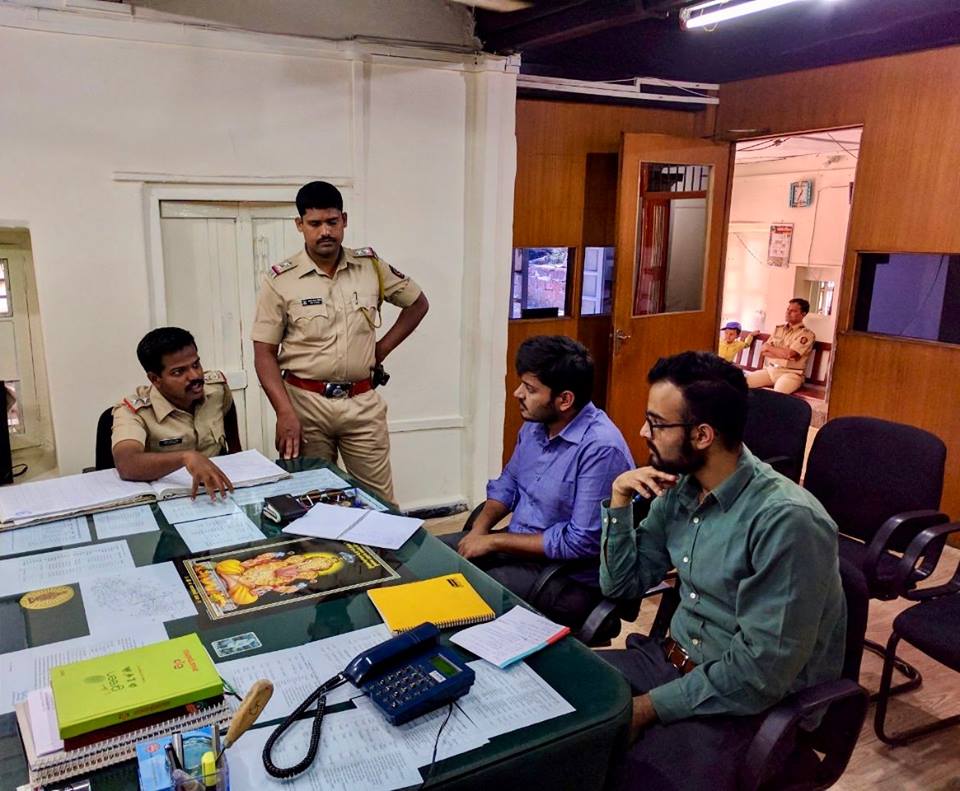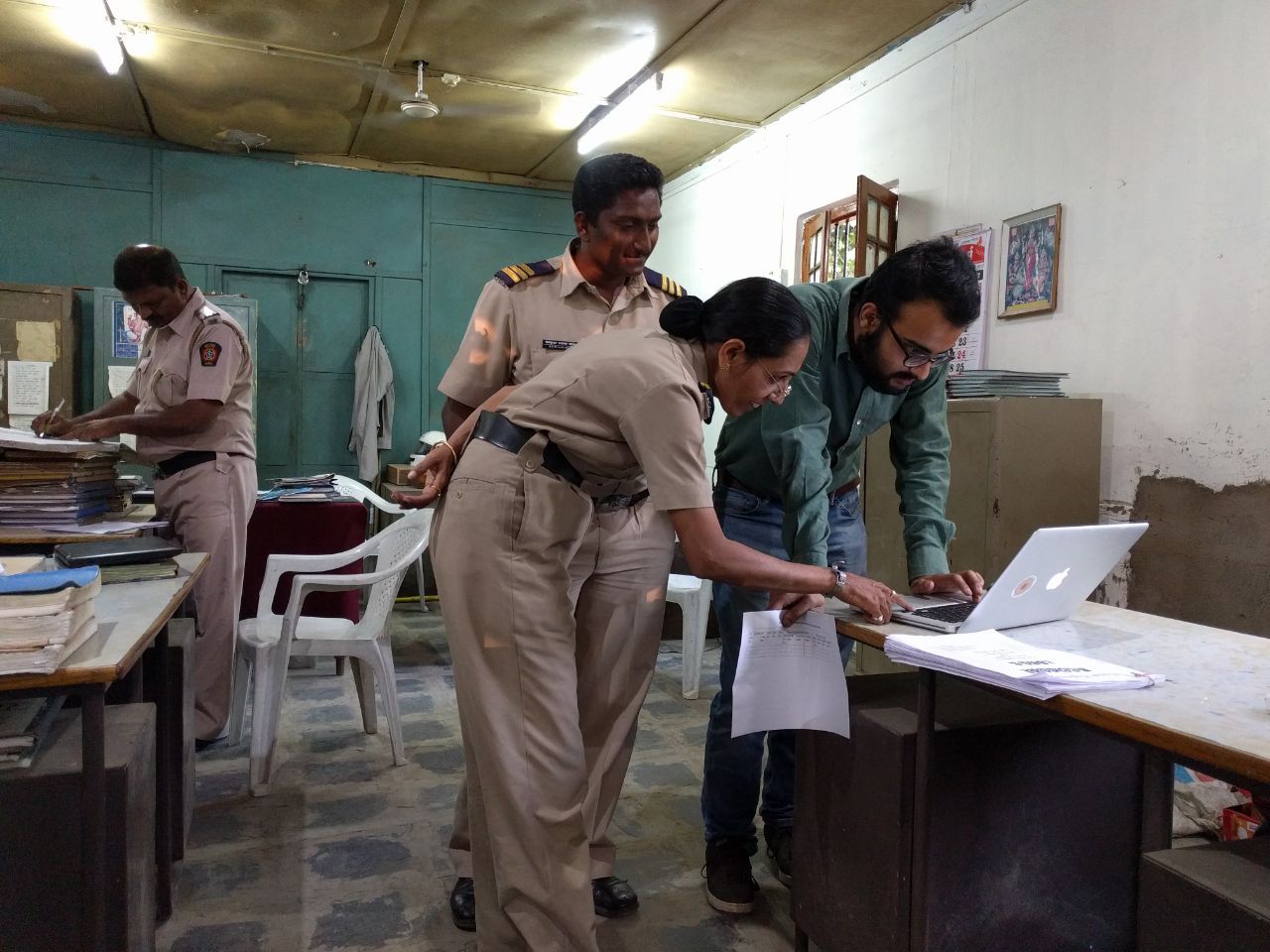Not by Accident but by (Intelligent) Design: Reducing Fatalities on NH 4 in Kolhapur
Unfazed by challenges, a diligent officer stationed in Kolhapur decided to wrest control of the roads, under his watch, by the most potent ammunition: the knowledge obtained through data.

Seated comfortably in his patrol van, we try to arrest the attention of our company, a police officer who occasionally steals a glance towards the road. Yet, we are so engrossed in the conversation that the cars whizzing past us cease to be an irritant.
And then its all brought to a screeching halt.
We look up to find a constable decked in spotless white issuing a spot fine to a truck driver. With nowhere to go, the driver resorts to stooping as he pleads with the policeman for a reprieve. Suddenly another truck makes a dash onto the scene and exits as swiftly, by swerving across the lane in a complete disregard for what’s unfolding in front of us. The constable is unable to register the offence, occupied as he is in fighting the battle in front of him while the war passes him by.
The Indian police is a much-maligned entity in our country. It is considered to be incompetent at its best or devious at worst. Yet it is lamentable to note how uncooperative we as citizens are when it comes to helping them uphold the sanctity of our laws.
Disobeying the rules of the road is a prime example of our apathy. A brazenness that leads to the death of many an aspiration, especially on the highways spread throughout the nation.
Besides, a shortage of manpower and the tools to enforce the law works against the ability of the police to stem the tide.
Unfazed by these challenges, a diligent officer stationed in Kolhapur decided to wrest control of the roads, under his watch, by the most potent ammunition: the knowledge obtained through data.
Having worked with us in the past, Mr Harssh Poddar (the erstwhile deputy superintendent of police of Karveer sub-division in Kolhapur district) had witnessed the change that external actors can initiate by collaborating with government officials. He inquired about our interest in tackling this knotty problem and we immediately consented.

After arriving in Kolhapur, we rigorously interviewed all the police staffers responsible for patrolling the highways and investigating crimes- Police Inspectors, police sub-inspectors, station house officers, highway patrolling squad, data entry operators and beat constables.
We noted the number of constables present in every police station, the duties assigned to them, and their schedules. We discovered that the female employees maintained the logs and compiled the data related to road accidents.
You might also enjoy reading: A New Road Rage: Traffic Cops Promote Safety With Music Videos, Puzzles & Dance
For our analysis we needed information related to both fatal and serious accidents that had occurred on NH4, for the past three years. The policewomen proved vital in sourcing the details and their feedback helped us in deciding the format of the document.
Another source of inspiration was the Accident Report Format(ARF) that had been made mandatory by the Ministry of Road Transport and Highways(MORTH) for obtaining details related to road accidents.
One of our focus areas was to demonstrate the usefulness of data that is already being collected. The parameters in our document were finalised on the basis of the information that was lodged through FIRs.
| Data Head |
| Location of accidents |
| Timing of accidents |
| Type of vehicles involved |
| Penal sections applied |
Table 1: Figure-heads of the data collected.
After receiving this data from the police stations we deduced the hotspots – places where fatal and serious accidents had repeatedly occurred for the past three years. Eventually, we narrowed down to eleven hotspots distributed amongst the five police stations.

Next, we manually surveyed the entire stretch of NH4 passing through the district, paying special attention to the hotspots. We were accompanied by officers from the respective police stations, the highway safety police and patrolmen from the National Highway Authority of India.
Mr Bhambure, the inspector belonging to Karveer police station, had conducted a similar exercise in Pune and his suggestions proved invaluable during our trips. We also photographed the infrastructural defects visible during our tours and a report containing the drawbacks was submitted to the deputy engineer of Maharashtra Highway Road Development Corporation(MHRDC).
Simultaneously we started analysing the data obtained to create a patrolling schedule to be followed by the constables. We also traced the path that a patrol vehicle should take in order to be at a hotspot when it sees the maximum number of accidents.
You might also enjoy reading: This Bengaluru Policeman Is ‘Punishing’ Traffic Violators by Gifting Them Something Green!
An analysis of the sections of the Motor Vehicles Act applied by the police showed that the provisions penalising over-speeding and drunken driving were inapplicable due to the absence of Speedometers (speed measuring devices) and breathalyzers. While this was not an unknown fact, our calculations re-enforced the need to address this problem.
In the meantime, Mr Poddar had formed a Highway Safety Squad comprising of eight constables and an Assistant Sub Inspector. They were made responsible for policing the highway and caring for the injured parties. We interacted with the selected constables and advised them on the sections of the Motor Vehicles Act that could be applied in cases where the vehicle can be stopped and when it speeds away.
Since the beginning of our operations in February we are glad to note that the number of accidents has reduced by half for the month of March and April. We commend the ingenuity and resolve of Kolhapur police in addressing a grave issue and are proud to have worked with officers of the ilk of Mr Poddar and Mr Nangare (the IG of Kolhapur).
Swaniti Initiative is a social sector organization which assists parliamentarians and district administrators in planning and execution of developmental projects.
Written by Rahul Mohan and Ashish Anand Roy.
Like this story? Or have something to share?
Write to us: [email protected]
Connect with us on Facebook and Twitter.
NEW: Click here to get positive news on WhatsApp!
If you found our stories insightful, informative, or even just enjoyable, we invite you to consider making a voluntary payment to support the work we do at The Better India. Your contribution helps us continue producing quality content that educates, inspires, and drives positive change.
Choose one of the payment options below for your contribution-
By paying for the stories you value, you directly contribute to sustaining our efforts focused on making a difference in the world. Together, let’s ensure that impactful stories continue to be told and shared, enriching lives and communities alike.
Thank you for your support. Here are some frequently asked questions you might find helpful to know why you are contributing?


This story made me
-
97
-
121
-
89
-
167













